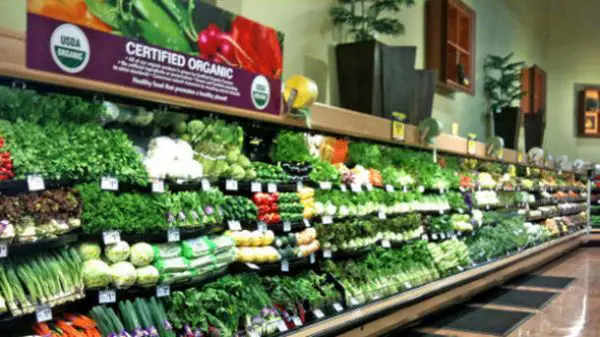Learn Organic Food's Definition With Facts; A Must Know If You Use It For Baby
People today are more conscious over what they consume, as what you eat directly affects and reflects on your health. One of the reasons for growing health problems in today’s time is due to the type of food we consume. Hence, health-conscious people are more inclined towards organic food, and the popularity of organic food is rising incredibly.
So we bring you interesting facts about organic food, and after knowing it’s health benefits, which also includes lowering the risk of life-threatening diseases, you will also opt for organic food for your baby.
Definition of Organic Food:
As per The Department of Agriculture and Rural Affairs, definition of organic food states that
‘Organic food is the product of a farming system which avoids the use of man-made fertilisers, pesticides; growth regulators and livestock feed additives. Irradiation and the use of genetically modified organisms (GMOs) or products produced from or by GMOs are generally prohibited by organic legislation.
Organic agriculture is a systems approach to production that is working towards environmentally, socially and economically sustainable production. Instead, the agricultural systems rely on crop rotation, animal and plant manures, some hand weeding and biological pest control’.
The parameters for organic food vary from country to country, and in the US the crops are organic if they are grown without using synthetic pesticides, petroleum-based fertilizers, genetically modified organism(GMOs), and sewage sludge-based fertilizers.
Similarly, the organic livestock raised for dairy, eggs, and meat should be given organic food along with an access of the outdoor for animal by-products, and while raising animals, and the use veterinary medicines like antibiotics growth hormones are discarded.

Caption: Vibrant organic food products on display.
Photo Credit: roguehealthandfitness.com
Interesting Facts about Organic Food:
Organic foods are labeled based on the percentage of organic ingredients in the product. “100% organic” labeled product contains organically produced ingredients only, “organic” labeled product contain 95% organically produced ingredients and “made with organic ingredients” contains 70% organic ingredients.
The conventionally grown apples, sweet bell peppers, celery, peaches, grapes, strawberries, imported nectarines, spinach, cucumbers, lettuce, potatoes, domestic blueberries, kale, green beans and other greens are that food which contains the highest level of pesticides. So it’s better to opt for its organic varieties.
The researchers also found that there is no significant difference between organic food and conventional food regarding nutritional value, possible allergic reaction or Campylobacter infections, i.e., a commonly found foodborne bacterial illness leading to food poisoning. But the significant difference in the detectable pesticide residue was noted as 7% in the organic product sample in comparison with 38% in the conventional produce samples.
Pesticides could be used to produce organic food as long as it is not a synthetic pesticide.
The production of a liter of organic milk requires 80% more land in comparison with the production of conventional milk. Not only that, organic milk production contributes in increasing global warming by 20%, acid rain by 70% and also releases 60% more nutrients into water bodies. Moreover, the organically reared cows discharge twice methane compare to the conventionally raised cows. And methane is 20 times stronger greenhouse gas than carbon dioxide.

Caption: Certified organic food in the display in a market.
Photo Credit: foodnavigator-usa.com
Organic Food and Child Health:
A study conducted in 2011 showed that when a pregnant woman is exposed to greater amounts of Organophosphate pesticides used in conventional farming, then there are chances of having children with lower IQs than their peer.
A study concluded that the consumption of the organic food by children resulted in the significant decrease in the pesticide level in the children’s urine.
Most pediatricians recommend children to eat a wide variety of fruits, vegetables, low-fat milk and whole grains among the organic food available.
The research discovered that conventional milk and organic milk have a similar level of contaminants and growth hormones thus, American Academy of Pediatrics emphasized on drinking pasteurized milk for the baby to reduce the risk of bacterial infection due to milk.
The demand for organic food is increasing like never before, and about $45 billion is spent on organic food each year in the United States. And to meet the growing demand, organic food and products, according to TechSci Research it’s available in more than 20,000 food stores almost every 3 out of 4 grocery stores.
An astounding growth rate in the organic food market has surprised its founders and investors, and the online store Thrive Market whose specialty is organic food and beauty product earned $10 million in sales just after 17 months of its launch. The addition to the examples of organic food is increasing as ever.
Today, you can not only get vegetables and fruits organic; but today you can find organic wine, beer, biscuits, coffee, frozen meal, cheese, condiment, cooking oil, fruit, fried or crunchy snack, and a variety of products to choose from.
The study and research have not shown any significant difference in nutritional value between organic and conventional food, and the debate goes on. But it cannot be denied that the popularity of the organic product is increasing, as it decreases the consumption of chemicals in the food products significantly. Also, the people is getting attracted towards organic products to promote their good health, but while getting benefits of organic food, the environment is affected by increase methane production which is the growing environmental concern of today’s time.